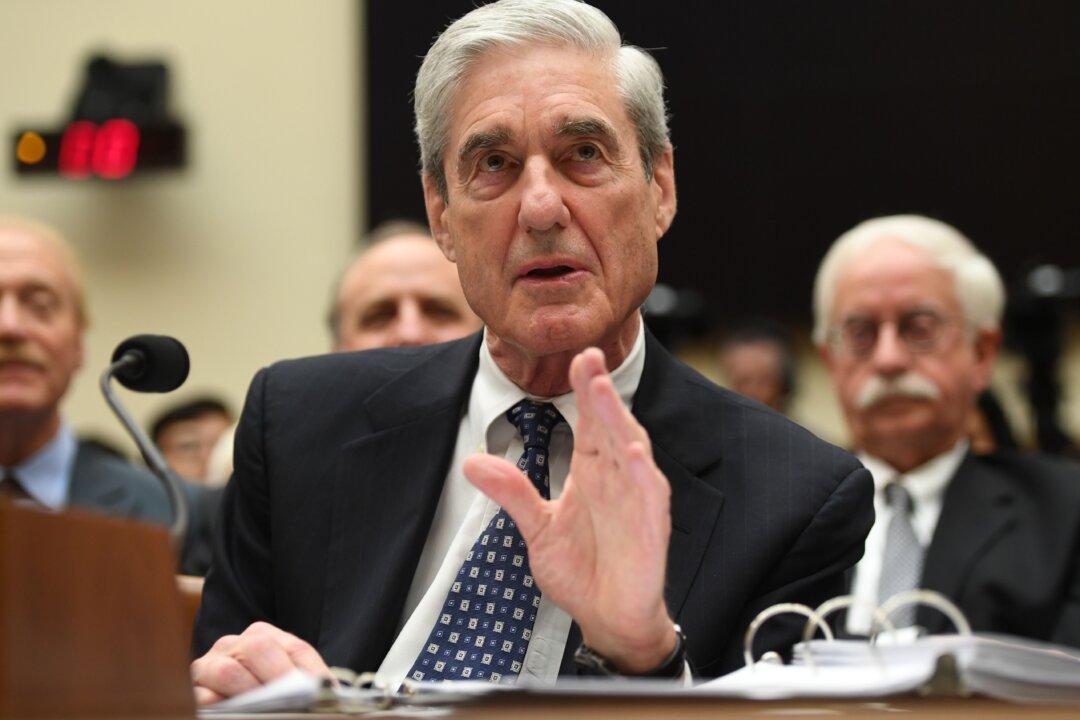A federal judge has ordered the Justice Department (DOJ) to publish a less-redacted version of former special counsel Robert Mueller’s report on Russian interference in the 2016 presidential election.
Judge Reggie Walton of the U.S. District Court for the District of Columbia said on Wednesday that the department had failed to properly demonstrate the redacted information could be protected by a Freedom of Information Act exemption called the deliberative process privilege.




